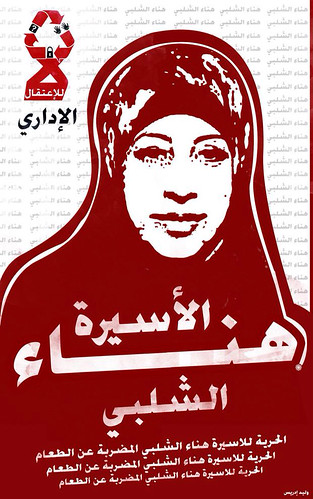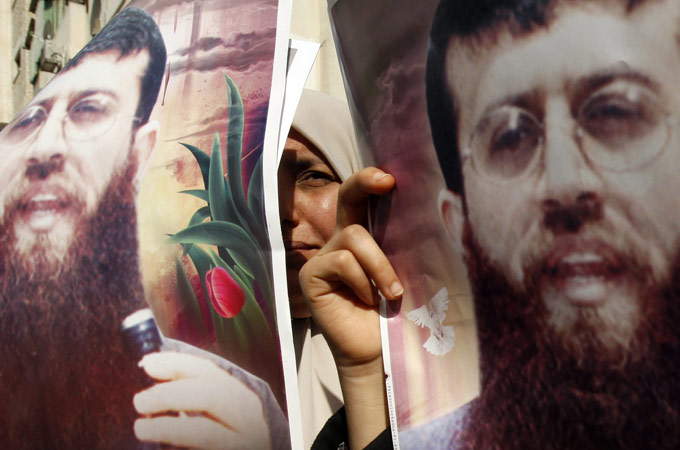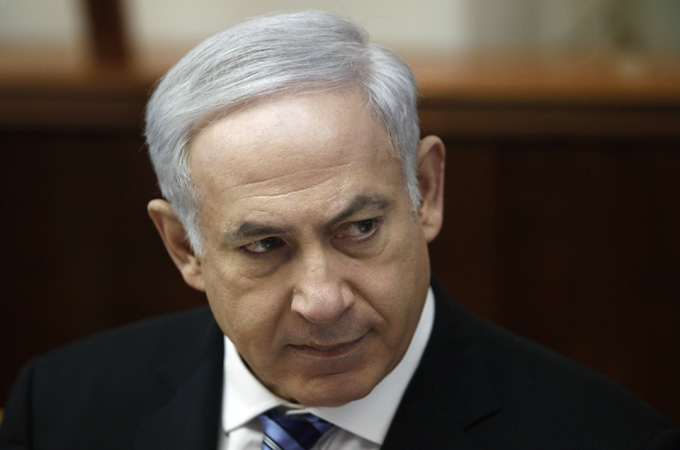Sixty thousand Palestinians live under harsh conditions in the Jordan Valley and the Dead Sea area - one of the most isolated and restricted areas in occupied Palestine.
The UN Office for the Coordination of Humanitarian Affairs (OCHA) has summarized their humanitarian situation in its February 2012
fact sheet.
The
Jordan Valley and Dead Sea area covers about one third of the West Bank. Eighty-seven percent of the land is designated as Area C, where Israeli exercises full control over security, planning and construction. The area is earmarked for the use of the Israeli military or falls under the jurisdiction of the illegal Israeli settlements. An additional 7% is designated as a nature reserve. In total, Palestinians are prohibited from using 94% of their own land.
Meanwhile, 9,500 Israeli settlers have established 37 settlements in the occupied Jordan Valley in contravention of international law. The Fourth Geneva Convention prohibits Israel from transferring parts of its own civilian population into occupied territory. Supported by Israel, the settlers have developed highly profitable agricultural, tourist, mineral and other businesses, including
Ahava cosmetics.
Severe restrictions on Palestinians
One quarter of the Palestinian population of the Jordan Valley and Dead Sea area - around 15,000 – live in Area C, including some 7,900 Bedouins and herders. The Israeli authorities obstruct construction activity by the Palestinian communities by withholding building permits for homes, schools, clinics, roads and water networks.
Palestinians in the area have restricted access to water resources. Water consumption in most herding communities is about 20 liters per person per day. This stands in sharp contrast to the World Health Organization’s recommendation of 100 liters per person a day. The settlers in the area consume a shocking 300 liters per person per day.
In addition, Palestinian access to and from the Jordan Valley is highly constrained. Four of the six access routes to the Jordan Valley are controlled by Israeli checkpoints. Non-residents are only allowed to cross these checkpoints as pedestrians or by traveling via registered public transportation. Palestinians who own commercial vehicles have to coordinate the crossing in advance, according to OCHA. Numerous checkpoints, roadblocks and trenches in the area are an obstacle impeding Palestinian access to grazing and agricultural land, services, and markets for agricultural produce. Moreover, the restricted freedom of movement undermines family and social ties. The map printed in OCHA’s
fact sheet provides a clear overview of the situation.
Israel’s full military control of Area C has resulted in food scarcity and water scarcity. A joint
survey by UNRWA, Unicef and the World Food Program revealed that 79% of the Bedouin and Palestinian herders in Area C in the West Bank – the Jordan Valley and the Dead Sea area included - are food insecure. The food insecurity in the herding communities in Area C is much higher than among the Palestinian population in the West Bank and the Gaza Strip where respectively 25% and 61% of the households are food insecure.
Forced displacement and evictions
In 2011, the Israeli authorities demolished over 200 Palestinian-owned structures in the area, displacing around 430 people and affecting the livelihoods of another 1,200 Palestinians. According to OCHA, thousands of Palestinians in the area are at risk of forced displacement due to home demolitions, forced evictions from closed military zones and a range of restrictions imposed by Israel.
However, the Palestinians are determined to continue living on their land. For example, Abed Yasin Rashaida, who has lived for 15 years in
Fasayil in the occupied Jordan Valley, says on video: ”We are Bedouin. Once we were nomads – we used to move from one place to another. Eventually we settled here to let our children study at school.”
On 20 December 2012, the Israeli army demolished some houses and animal shelters in Fasayil. “They started demolishing at eight in the morning. The bulldozers destroyed everything and covered the mattresses with soil. Flour, sugar, lentils, oil – they destroyed everything,” according to Rashaida.
More








 The protesters are mainly Shia Muslims, who make up 70 percent of the population but are shut out of almost all government posts. The Sunni al Khalifa family has ruled Bahrain for more than 200 years, with King Hamad bin Isa al Khalifa holding nearly complete control of the country.
The protesters are mainly Shia Muslims, who make up 70 percent of the population but are shut out of almost all government posts. The Sunni al Khalifa family has ruled Bahrain for more than 200 years, with King Hamad bin Isa al Khalifa holding nearly complete control of the country. 






